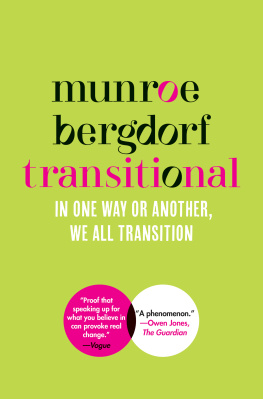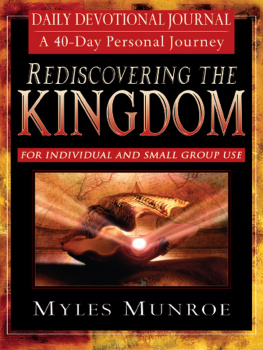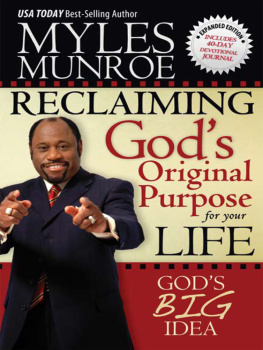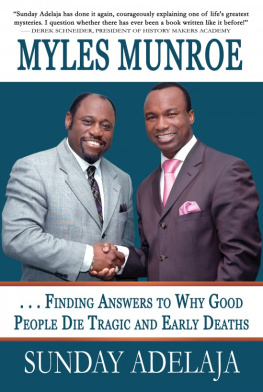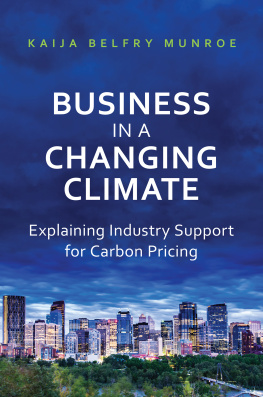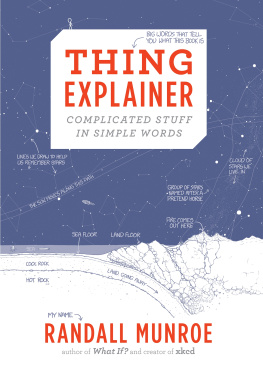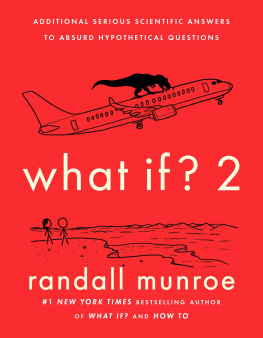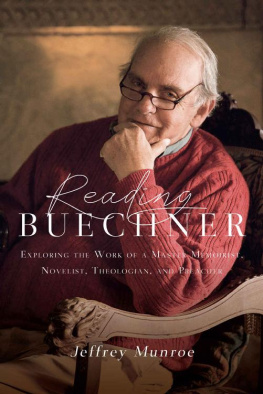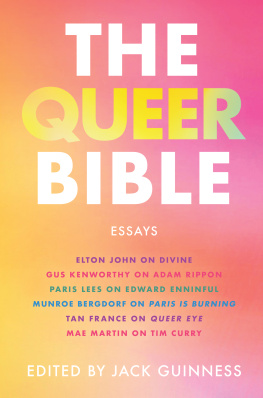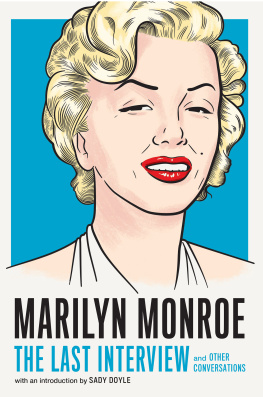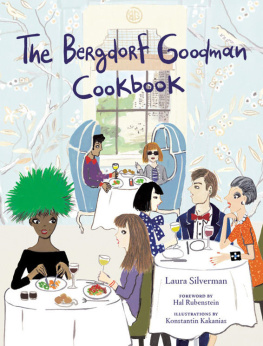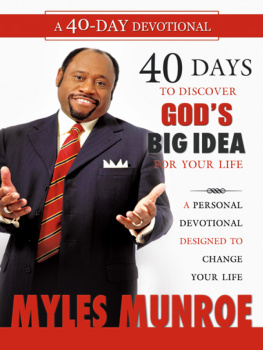In Memory of Sarah Ava Fersi
Thank you for showing me the truth about love.
The love that I deserve,
The love that others deserve,
The love that I owe to myself.
I promise to live this life for the both of us.
Contents
Sometimes, not often, but sometimes, I ask myself this question: what if Id just done nothing? What if Id remained stuck in purgatory between the hand I was dealt at birth and the outward lie that appeased those around me? How long could I have kept it up? What if I had just let life play out with no intervention? How long would it have taken for me to find an alternative happiness, one that would have stuck? Would happiness ever have shown its face, or would things have continued to unravel?
Who would I be now, if I hadnt started searching for who I was back then?
This isnt to say that I for one minute regret transitioning; it is the single most courageous act of self-love that I can fathom. Today I am a world apart from the shy, nervous, blank canvas of a child I once was... But its hard not to ponder where I would have ended up if I had headed down the other fork in the road. I cant imagine the outward lie would have lasted long. Ive never been very good at keeping those kinds of secrets. A double life never much appealed to me, especially after having to live so long as someone I wasnt. Ive always been an all-or-nothing kind of girl.
I usually think these thoughts when I am my most run-down, after Ive exhausted my body in trying to keep up with my minds pace. I tend to unconsciously push myself past emotional checkpoints that Im not physically or mentally ready for, and the thoughts usually accumulate in a wandering mind inside a burnt-out brain.
My decision to transition was a life adjustment, not a life change. We do not all of a sudden become a whole different person upon the realisation of our transness. None of us becomes a whole different person the moment we start presenting ourselves in a way that aligns with who we are on the inside. We do not change just because people start to see us differently from how they initially perceived us. And what struck me when I started to contemplate these ideas around my transition, was just how deeply transitioning is ingrained in our human experience. It is not a process that only trans people go through: transitioning is universal. We all do it.
Transitioning is an alignment of the invisible and the physical; its the truth rising to the surface. I believe this to be one of the most fundamental and essential aspects of the human condition, and part of our experience as a conscious being, no matter who we are. As time goes on, we all develop as people, we all encounter traumas, lessons and transitional moments that not only shape us, but when contextualised and after weve healed, can bring us closer to a shared understanding that our differences unite us. We often arent as different as we are led to believe we are.
None of us ever becomes someone else entirely regardless of how we identify but nor do we stay the same for ever. We all transition. Its what binds us, not what separates us. Be it through moving from childhood into adolescence, our sexuality, our gender, in our relationship with love, our racial identity or individual purpose, every aspect of our lives is in transition; and if we can apply transitional thinking to our lives, we can begin to deconstruct both the internal barriers within ourselves and the external barriers between each other. This benefits us all, both as individuals and in order to create a global consciousness.
We all worry how other people see us. And conversely, the idea that someone may not be who we perceive them to be is a narrative continually employed in our storytelling, from Shakespeare to Richard Curtis movies and from Coronation Street to RuPauls Drag Race. But why are we so fascinated and obsessed by our human transition, why has so much time and space and creative storytelling been given to this idea of being (or not being) what meets the eye? I think its because, when we observe someone change and evolve as a person, it makes us question how well we really know them. And this in turn makes us question how well we ever truly know ourselves.
I look forward to the day when people view a gender transition as no different from other socially accepted transitional narratives. For many, a transition is a coming-of-age story of sorts. Its no different from a girl becoming a woman, a boy becoming a man or an apprentice becoming a teacher. One way or another we all transition; its merely a discovery of self but a discovery of self with an audience of fascinated spectators, gatekeepers and non-believers.
Perhaps its the visual element of a transgender persons transition that makes it such a difficult process for society to navigate. So many other ways in which we transition arent as tangible. I have been made to feel like a spectacle in parts of my life and Ive found this traumatising. So sometimes I ask myself: what if Id just done nothing? What if I had just let life play out with no intervention? And the answer is, I would not have understood myself at all, because that would have been a refusal to engage with knowing myself.
This is a book about navigating difficulties, about how we all transition from trauma. You, the reader, will have done so too and you may be able to contemplate in your mind now the person you were before and after, and how you emerged changed from the mess you were in.
There is also the pressure that society puts on us to want to be someone else, to move the contents of our past safely into our subconscious. Our subconscious remains an un-ventured room in our house, containing all the difficult secrets, trauma, mistakes and loss that we just cant seem to part with, as much as we try. The human subconscious is the attic of the soul, a storage room for inconvenient truths, but its also probably the place in our minds that understands our need and desire to continually transition in our lives. All a lot of us want to do is adjust parts of ourselves to feel comfortable living our lives, not to exist with one foot in the attic and the other in the living room.
It is crucial that every door of every room in our soul stays open. It is crucial that light and air runs throughout our house in order to keep a healthy, happy home for our soul and our psyche to live in. It has been in the most testing of times, the darkest, most impossible moments that I have learned the most about myself. My strength of character, resilience, endurance and determination are all products of intense self-work. This has involved frequently challenging myself in how I think. We all become stronger as we transition, and as we move from one point to another, closer to a place of honesty and empathy.
When I was a child, I often ran away from home. Sometimes I only made it as far as the end of the neighbourhood recreation ground, from which I could still see my house in what then felt like the far distance. I usually returned before anyone had the opportunity to notice or be alarmed. I was eight years old and already aware that running away was not a realistic solution to the problem of not wanting to be there. This didnt, however, prevent several future attempts at escape. As I got older the distance got further, the time got longer and the concern for my whereabouts grew.
I continued to try to run away long after leaving home. Some of these attempts almost killed me. Indeed, everything is an attempt to flee if you cant love who you are. Nowhere feels like home when its you that youre running from. We stop trying to escape when we transition into our real selves.
* * *
Shed never admit to it, but my mother always liked a bit of gossip, which was a shame, as there really wasnt any with meat in our deeply uneventful corner of Essex. I grew up in Stansted Mountfitchet, a picturesque, upper-middle-class, Norman town in the south-east of England, surrounded by woodlands, nature reserves and fields. In retrospect, we probably

